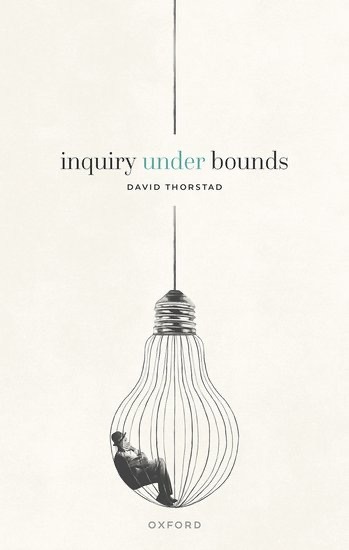1. Introduction
This is the first in a five-part series introducing my book, Inquiry under bounds. The book is available here under an open access model from Oxford University Press.
2. My project
Humans are bounded agents. Some of our bounds are internal. For example, we have limited cognitive abilities and incur costs in exercising our abilities. Other bounds are external. For example, we find ourselves in environments that we did not choose, which structure the problems we face and the likely outcomes of cognitive strategies that we can apply to them.
Theories of bounded rationality ask what rationality requires of bounded agents, who are bounded in these and other ways.
Herbert Simon held that the fundamental turn in the study of bounded rationality is the turn from substantive to procedural rationality. Whereas theories of substantive rationality ask normative questions about the attitudes produced by inquiry, theories of procedural rationality ask normative questions about the processes of inquiry that produce them. Taking the procedural turn means spending less time asking normative questions about attitudes such as rational belief, credence, preference, and intention, and more time asking normative questions about the processes of inquiry that produce them.
If Simon is right, then a key part of the study of human rationality is a theory of rational inquiry for bounded agents. We need, that is, a theory of inquiry under bounds.
3. Outline of book and series
Inquiry under bounds aims to deliver that account. The book has four parts, which will be covered in the remaining four posts in this series.
Part 1, Rationality at the crossroads, situates the bounded rationality approach against a competing Standard Picture on which rationality is exhausted by requirements of coherence or consistency. I develop five characteristic claims of the bounded rationality approach and show why a theory of rational inquiry for bounded agents is needed to defend, clarify and apply them.
Part 2, Norms of inquiry, develops a novel account of rational inquiry for bounded agents: the reason-responsive consequentialist view. This approach combines a consequentialist theory of rightness with a reason-responsive theory of rationality and an information-sensitive reading of deontic modals.
Part 3, Justifying the account, gives three arguments for the theory developed in Part 2: the argument from minimal criteria, the explanatory argument, and the argument from vindicatory epistemology.
Part 4, Applying the account, uses the reason-responsive consequentialist view to clarify and defend the characteristic claims introduced in Part 1, revisit the relationship between bounded rationality and the Standard Picture, and draw lessons for the epistemology of inquiry. I also suggest that completing the procedural turn in the study of bounded rationality requires a second zetetic turn in practical philosophy, from the study of practical attitudes to the study of practical inquiry.
Podcast: Play in new window | Download (1.1MB)


Pingback: Mini-Heap - Daily Nous